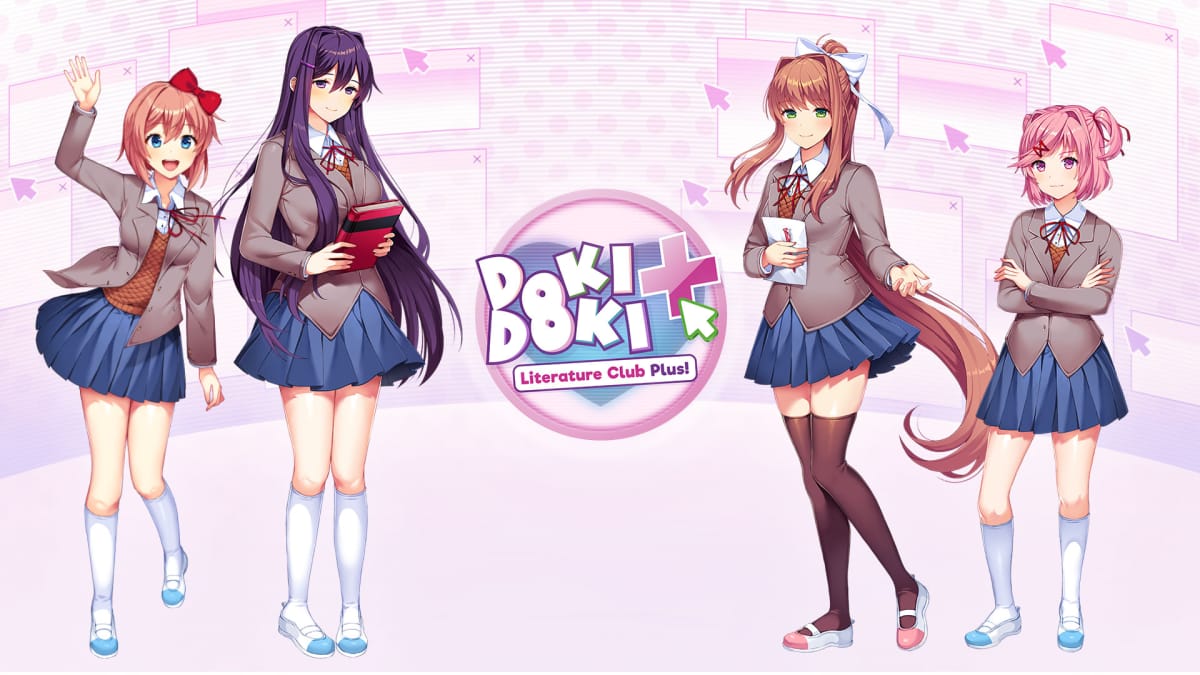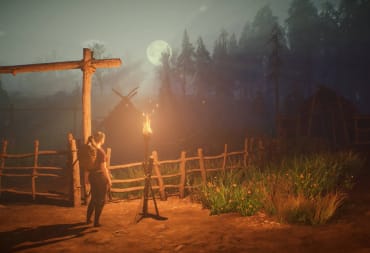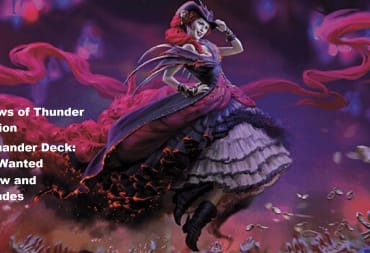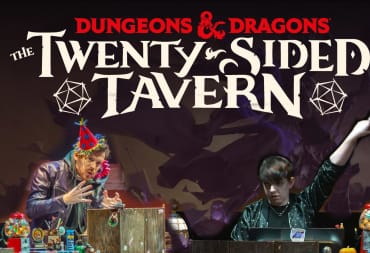Video game developers often have an important goal in mind when developing their story: to make the player feel an emotion. This objective can be easier for developers of horror games, as the main emotion those titles aim to lure out is fear. From cheap jump scares to over-the-top gore, horror can cheap out on its emotion-provoking premise by easily “scaring” the player. Titles like Outlast, Resident Evil, and Alien Isolation, all critically acclaimed horror games, tend to rely on jump scares to raise your heart rate and draw out terror. Despite this, Doki Doki Literature Club Plus!, the subsequent release to the 2017 horror hit Doki Doki Literature Club!, walks the line of typical tropes and genuinely terrifying psychological horror.
From this point onward, there will be major spoilers for Doki Doki Literature Club Plus!
By expanding the range of what can be considered “scary,” Doki Doki Literature Club! maintains status as one of gaming’s most horrifying experiences. This is partly due to the mask of innocence the game dons. Being stupefied with suicide amidst a bubbly dating simulator is sure to shock the audience and instill a sense of fear, but DDLC succeeds at far more than just delivering a solid horror experience.
While playing through Doki Doki Literature Club Plus!, DDLC's console debut with added content, I was reminded of just how relevant the game’s themes are today. Through commentaries on depression, loneliness, and social isolation, DDLC+ transcends its characters to an exceptionally relatable level with topics that are especially relevant to a society on the tail end of a pandemic.
Within all of the unsettling sights of horror in DDLC+, nothing was more engrossing than the ailment of the game’s villain, Monika, who had been altering the game’s code to make her companions seem unlikable. After becoming self-aware, Monika single-handedly pushes Sayori to suicidal tendencies, Yuri to obsessive behaviors, and Natsuki to aggressive affection in an effort to bring your attention to her. By doing this, Monika hopes you’ll pick her as a lover, curing her aching loneliness that grows the more time she spends inside of the game.
Harrowing Digital Isolation
The nature of the literature club involves each member, including the player, expressing their feelings by writing poetry. For Monika, her shared poetry is a telltale sign that she is emotionally unwell. Looking back on the game, it's painfully obvious that her thoughtfully written musings are speaking to her period of isolation within the computer. Her clever description of “bright, beautiful colors” of “red, green, and blue” as an “endless cacophony of meaningless noise,” which is an obvious allusion to the pixels on the monitor, is an early sign that she is isolated within your computer.
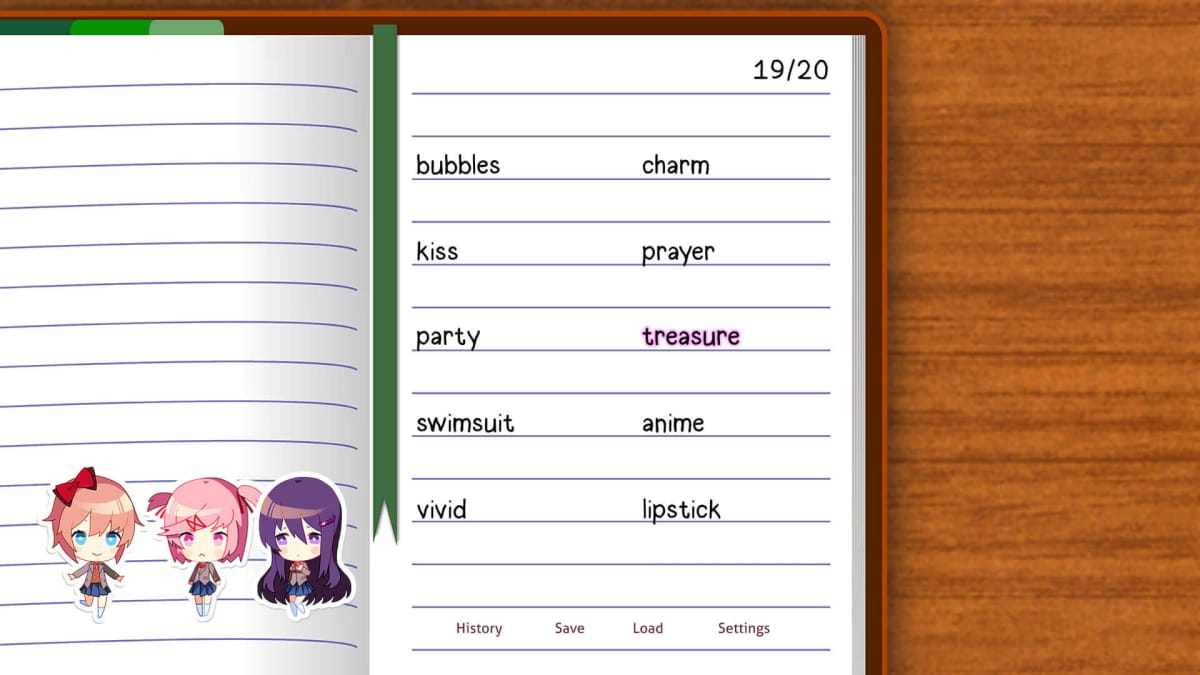
Even though she has friends within the Doki Doki Literature Club! game world, Monika’s epiphany that she exists within the confines of a virtual space plagues her with chronic loneliness. Due to the mental divide between Monika and the members of the literature club, she takes refuge in her mind, feeling an immense isolation that chips away at her sanity, moral compass, and overall personality. While nobody in the real world is stuck within a digital world, the symptoms of loneliness are on par with those who suffer in reality.
It's not far-fetched to suggest that the loneliness a depressed person feels isn’t so different from Monika’s self-aware isolation. Those who suffer from chronic loneliness, even if they have an abundance of people around who care about them, will still feel disengaged and isolated. This apparent isolation is a product of the massive mental gap between the state of the person who feels alone and the people around them. A lonely person might feel as if nobody “gets them” and that nobody would understand if they expend their energy opening up. Monika surely feels the same way, as she never opens up to the other members of the literature club about her discovery. After all, would they believe her? Would they understand, or even care?
To Monika, it didn’t matter; her friends were nothing but lines of code — character files on the program she discovered. An individual suffering from depression might feel similarly with their peers, knowing that they aren’t experiencing the same issues, therefore not understanding what they’re going through. It makes even more sense, then, that Monika would find solace in the only person who genuinely knows what she is experiencing: you, the player. She no longer had the ability to connect to her peers on a deeper level, but with the player, the intimacy came with the fact that you were real.
Connecting Doki Doki Literature Club! to Quarantine
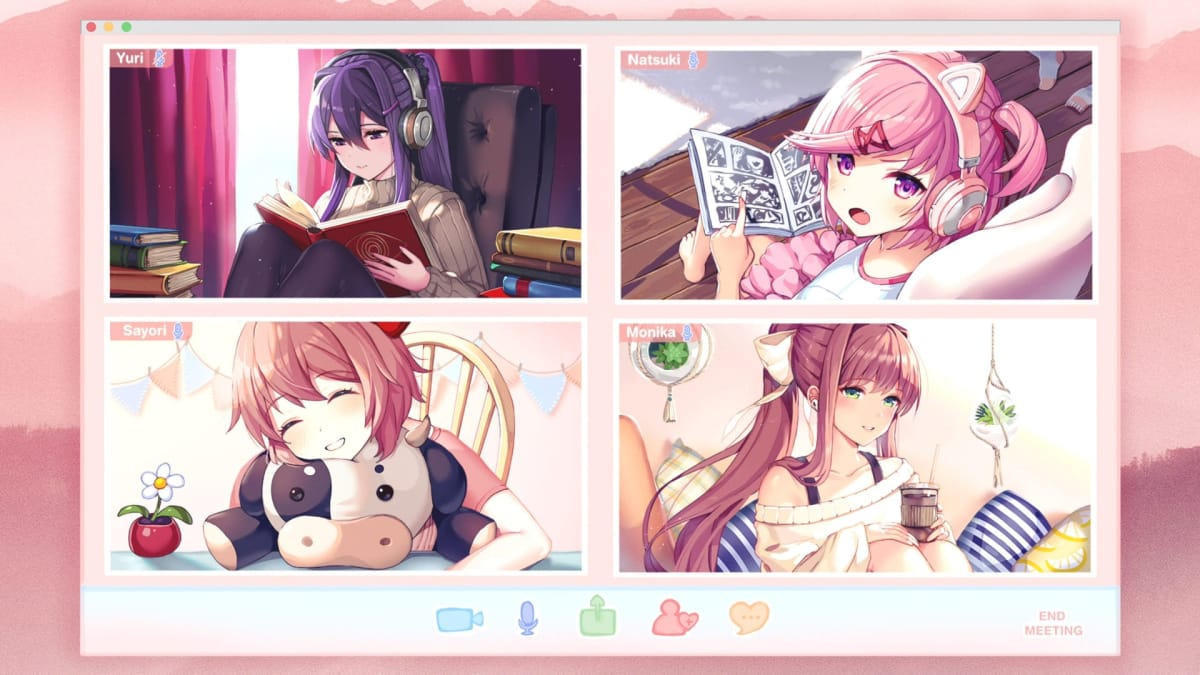
While Doki Doki Literature Club! was released far before the pandemic, I couldn’t help but feel like the game fits as an allegory of sorts for the social loneliness many experienced during the pandemic’s lengthy quarantine. Being secluded from our usual schedules at school, work, or wherever led many people to experience a sense of isolation during the pandemic — even some who quarantined at home with family. According to the Health Affairs Blog, our society experienced a “population-wide social isolation due to COVID-19,” going on to state that “preliminary surveys suggest that within the first month of COVID-19, loneliness increased by 20 to 30 percent, and emotional distress tripled.” The blog goes on to explain that concerns for an increased risk of suicide, substance use, and domestic violence all rose during the introduction to quarantine.
Don’t get me wrong — there were people who survived the pandemic with no qualms; some people even found the strength to thrive in it. Regardless, though, even the notorious introverts of our society (including myself) experienced scary social withdrawals, something that was largely unexpected. While I’m not big on going out to social events or keeping a large ring of friends to pick and choose for hangouts, I still missed something as simple as the feeling of being around people. My classes shifted to online, and I had trouble studying, keeping a solid sleep schedule, and connecting to my classmates.
If anything, the pandemic made me realize just how important it is for humans to be around other people. Whether they're being isolated from deep, intimate connections or simple social interactions, people mentally suffer the more time they spend alone. As stated before, some of the most isolated people can be those going through depression. Doki Doki Literature Club! tackles this issue with a commentary through one of the club members, Sayori.
Displaying Openness & Vulnerability
Monika’s poems, character, and dialogue subtly hints at something festering deeper inside her, but Sayori’s suffering is much more prevalent. Sayori suffers from depression — chronic depression, to be exact. She explains to the player that she feels as if she has trouble getting out of bed, putting on a smile, and wearing it throughout the day. She is mentally exhausted and believes the world would be better off without her, as opening up to others only brings more sadness to everyone. This belief that she is an outlying variable that simply brings despair to those around her pushes Sayori deeper into depression and, like Monika, makes her feel isolated and alone. While Sayori’s depression was touched upon in DDLC, the ‘Side Stories' of DDLC+ explore her personality further.
In the first side story (and in my opinion, the best one), Monika sets out to establish the literature club and meet new members. Sayori is the only person to show up, and the two slowly get to know each other as they seek out new members. The chapter reaches a point where Monika struggles to write poetry, as she has trouble expressing her emotions. Sayori notices this, then asks Monika, “Can I trust you?” to which Monika responds with, “You can trust me with anything.” After this, Sayori writes on a sheet of paper, “Sometimes I want to die,” and then presents it to Monika. The lines are delivered with a blunt and brutal honesty, but it's just what Sayori needs in that moment. By opening up and being vulnerable, despite being terrified of doing so, Sayori hopes to help her new friend do the same.
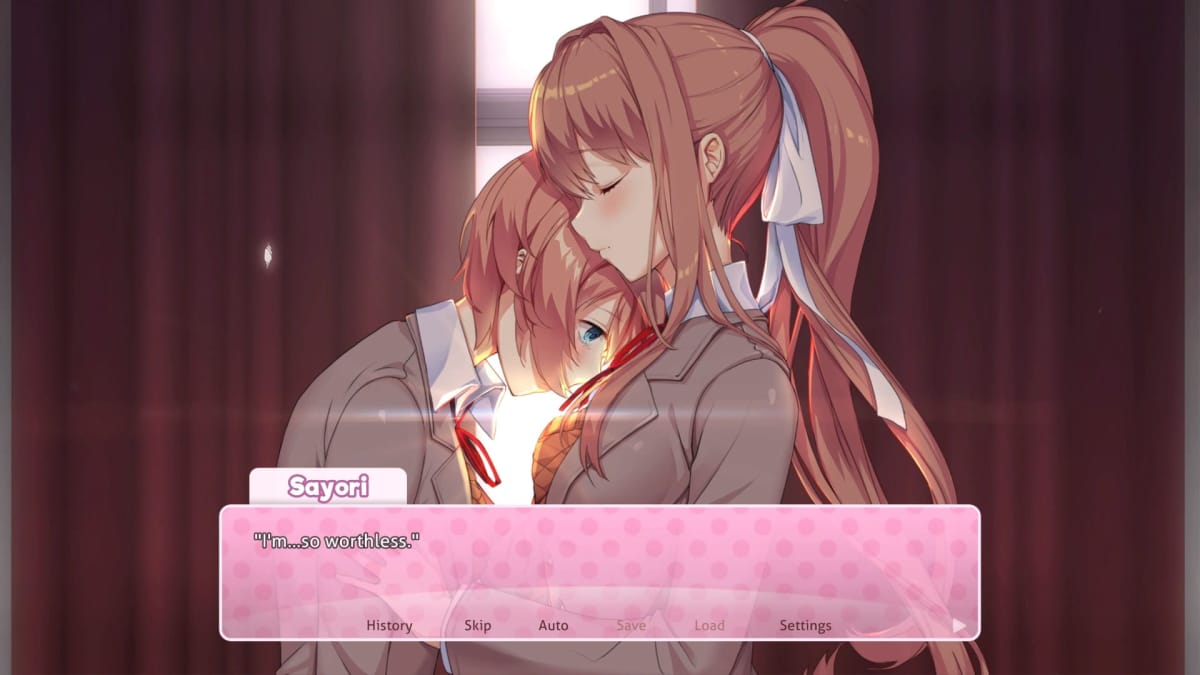
Monika’s responses relax the emotional Sayori, letting her know that she’s not an inconvenience. “This isn’t putting up with you. It's just being your friend.” The dialogue is a moment of transparency between Salvato and the player, as the game continues by explaining that Monika can’t just magically make her thoughts go away, but she can offer her support as Sayori battles her demons alone. Monika’s reminder that Sayori has value to her and the literature club is just enough to help her keep going and enough to make her feel less alone. Monika and Sayori’s dialogue is an exceptional portrayal of depression, mental health, and the breaking down of emotional barriers to grow closer to your friends.
A Reminder to Check on Your Friends
Just as Sayori brought happiness and companionship to Monika and the literature club, people today are slowly reentering the world once more to connect with strangers, friends, and family alike. With a quarantine that had run people through the wringer of social destitution, symptoms of depression heightened. Now more than ever is it important to check on the well-being of your peers and express vulnerabilities.
Perhaps the most important lesson of all to come out of this deceptively deep psychological horror was the reminder of just how dangerous loneliness can be (as well as just how important it is to care for those who are feeling the effects of it). It's doubtful that a sudden loneliness will drive people to the exaggerated, obsessive, and homicidal behaviors of Monika, but it still remains true that everyone can benefit from a warm hug from time to time. After all, the good ending of Doki Doki Literature Club!, which can only be obtained by saving and loading to spend time with every character, praises the player for being so gracious and sympathetic.
Doki Doki Literature Club! plants the seeds of fear and despair within a tragically written plot, but only in the wake of these heavy-hitting feelings can the game deliver its most sentimental emotions: empathy, compassion, and love. So, as DDLC says, go and check on your acquaintances, friends, and family. Ask if they’re OK, look for signs of mental barriers, and work together on bringing them down.
Have a tip, or want to point out something we missed? Leave a Comment or e-mail us at tips@techraptor.net
